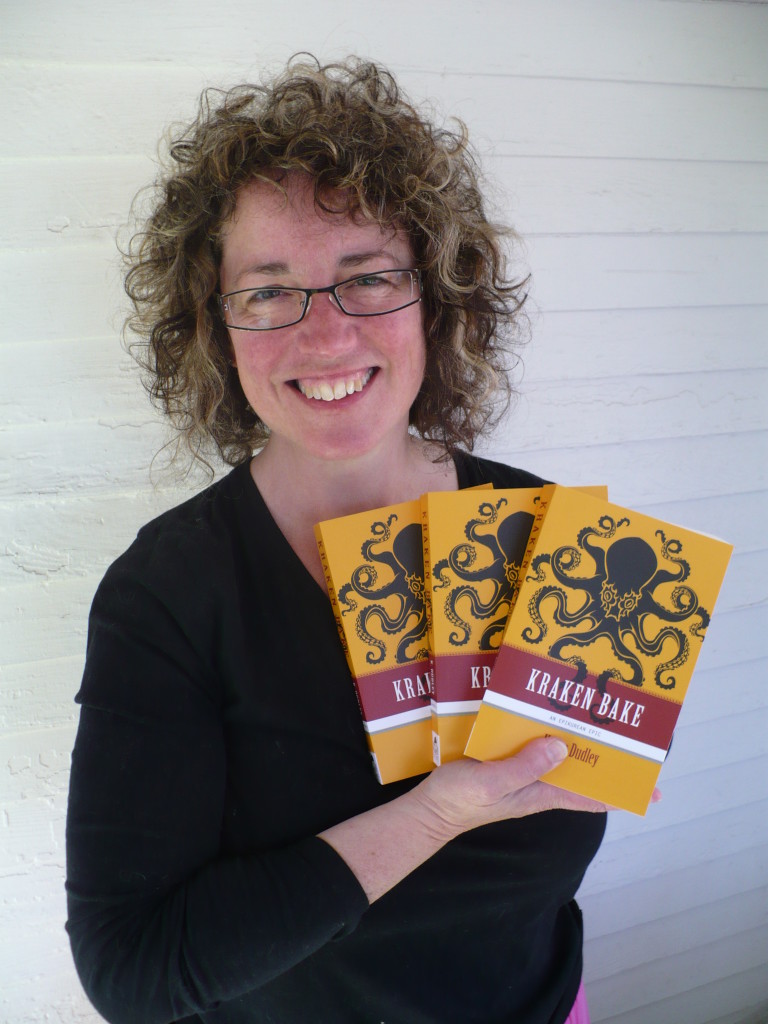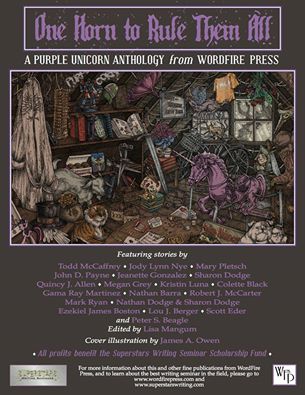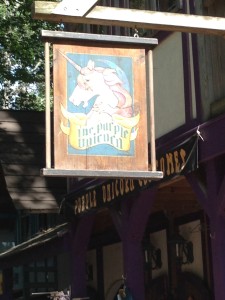A guest post by Scott Eder.
When asked to write a post for The Fictorians on the “stranger than fiction” theme, I paused before accepting. Off the top of my head, I couldn’t think of an incident in recent memory that would qualify, but I love The Fictorians blog and figured I’d come up with something. Instead, something came up with me.
Fake Aladdin had to go, or at least shut his mouth. Hell, he was the reason we were stuck in the first place. I knew the downtown hotels were packed during DragonCon, but geez. I can handle a crowded elevator, but this?
I’d grabbed an elevator up from the nineteenth floor thinking it would top out, and I’d be set for the ride back down to the lobby. Claiming a spot on any of the vertically moving conveyances provided a challenge, so I grabbed one when I could. Easy peasy.
Freakin’ Aladdin slid aboard on the twentieth floor in a flash of purple silk, baggy pants, and goofy grin, trailing a crew of Agribah rejects—a sleepy-eyed, barely dressed ninja with iridescent lip gloss, a Tom-Baker era Dr. Who trailing a long scarf, and his companion, a red shirt wearing Starfleet officer. The red shirt should have been my clue to exit, but I wasn’t attuned to the signs.
In my opinion, the elevator was full. We had a little room to move without intruding upon our neighbor’s personal space. A few of us had forgone costumes, but the majority represented the universe of sci-fi/fantasy fandom. Pressed against the elevator’s glass wall behind me, another Whovian, this one bearing a striking resemblance to David Tennant, and his Rose Tyler matched well. Orcs, knights, Star Wars, and Game of Thrones characters stood shoulder to shoulder, passing flasks and laughing. So what if the temperature started to climb? We wouldn’t be on here long enough for it to become a problem. No worries.
We stopped on eighteen. The doors slid open. Aladdin beckoned to the folks waiting outside, and in a loud voice invited them to join us. Smiling, those waiting shrugged and pushed inside.
We stopped on seventeen. The doors slid open. Aladdin beckoned to the folks waiting outside, and in a loud voice invited them to join us. With a shrug, more people joined the “fun.” We were full before, but now we were packed. The mass of humanity crushed the short, lithe ninja against my side. Her diminutive world had narrowed to elbows and armpits. Poor thing. I wanted to throttle the street rat for being too affable, but the press of the other characters locked my arms at my sides.
The heat rose, and so did the stink.
We stopped on sixteen. The doors slid open. Aladdin beckoned to the folks waiting outside, and in a loud voice invited them to join us. Those waiting eyed the dense crowd, and backed away. Thank goodness.
Fifteen, fourteen, thirteen, the same thing. At every stop, Aladdin did his thing. Nobody took him up on his offer again until the eighth floor. The doors opened on a pair of voluptuous young girls with flowing hair and too-tight corsets jacking up (and almost out) their ample breasts. The guys near the doors sucked in their guts. The ladies squeezed in, and the doors closed.
We dropped four feet, and the doors burst open then quickly closed again as we jerked to a stop. Dead on the vine.
Freakin’ Aladdin.
Ten minutes. Twenty minutes. Voices grew louder. Tempers flared. Sweat streaked down my face. Bodies crushed against me. The poor little ninja against my chest wilted, having trouble catching her breath. The woman near the doors mashed the emergency call button again and again and again. No response. Security guards lined the balcony of the eighth floor. A few talked through handsets, while others took pictures with their cell phones. Other guests followed the situation as we became the hit of the moment.
Thirty minutes. Bodies shifted an inch so the ninja could breathe. Grumbles. Accusations. Damn, it was hot.
The doors popped open, letting in a cool, fresh breeze, and a grim-faced hotel representative poked in his head. He said that the elevator would not budge even after several restarts. They were going to have to lift us out by hand.
Really? By hand? I thought this crap only happened in the movies. Damn.
One by one, a crew of the hotel staff unceremoniously hauled us out on our butts. Nice. What a great way to start the Con.
Since he was a kid, Scott wanted to be an author. Through the years, fantastic tales of nobility and strife, honor, and chaos dominated his thoughts. After twenty years mired in the corporate machine, he broke free to bring those stories to life. Scott lives with his wife and two children on the west coast of Florida. Check out Knight of Flame on Scott’s website.




 Guest Writer Bio:
Guest Writer Bio: 
